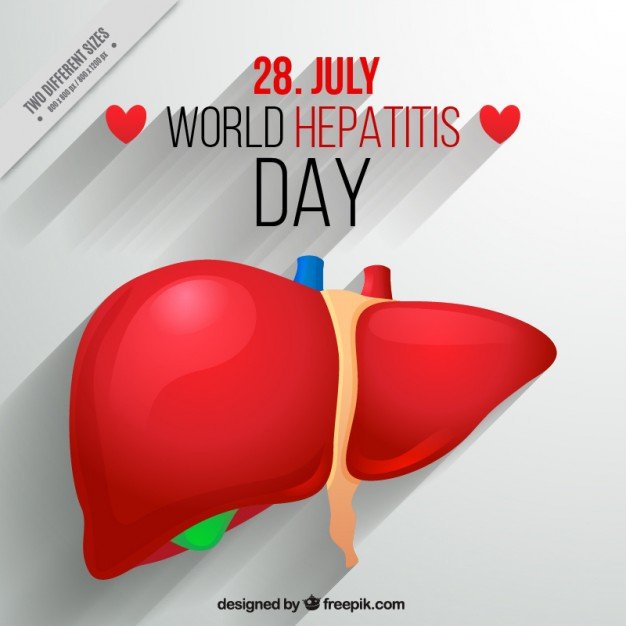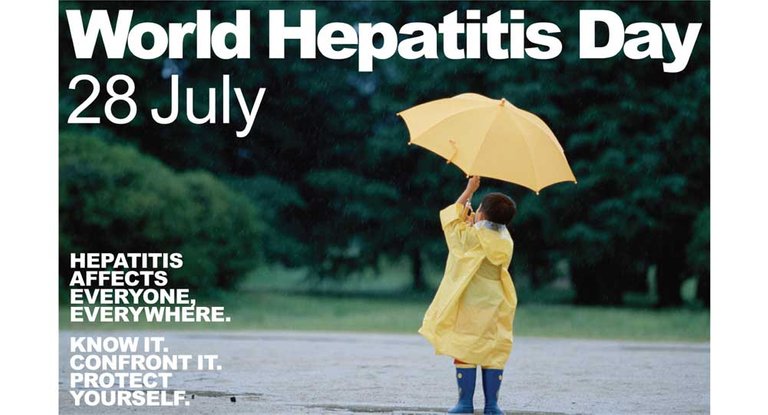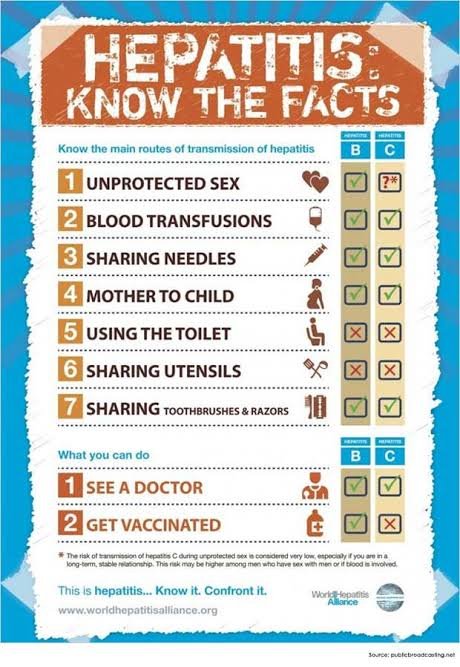Saturday, July 28 marks World Hepatitis Day 2018, organised by the World Health Organization (WHO) to raise awareness of the disease and focus on how it can be treated, and eliminated. WHO focus on the theme: "Test. Treat. Hepatitis" for World Hepatitis Day 2018

With less than 5 percent of people who are infected with hepatitis virus aware that they are infected, here we round up ten facts about hepatitis to help keep you informed.
Hepatitis is an inflammation of the liver, which can progress to fibrosis (scarring), cirrhosis or liver cancer. Hepatitis viruses are the most common cause of hepatitis in the world but other infections, substances such as alcohol and certain drugs, and autoimmune diseases can also cause hepatitis.
There are 5 main types of hepatitis viruses, identified by the letters A, B, C, D, and E. They can all cause liver disease, however they can be transmitted in different ways.
Types B and C lead to chronic disease in hundreds of millions of people and, together, are the most common cause of liver cirrhosis and cancer.
Hepatitis B, and C are most commonly spread through unprotected sex, drug injection, and unsafe medical practices.
The symptoms of Hepatitis B and C may not show for a long period of time, sometimes years or decades, with at least 60 percent of liver cancer cases due to the late testing and treatment of viral hepatitis B and C.
Symptoms for those with acute hepatitis B may last several weeks if they do appear, and include yellowing of the skin and eyes (jaundice), dark urine, extreme fatigue, nausea, vomiting and abdominal pain.

Following initial infection of hepatitis C, approximately 80 percent of people do not exhibit any symptoms. Those who do show symptoms may exhibit fever, fatigue, decreased appetite, nausea, vomiting, abdominal pain, dark urine, grey-coloured faeces, joint pain and jaundice.
An estimated 257 million people are living with hepatitis B virus infection, and in 2015, hepatitis B resulted in 887,000 deaths. An estimated 71 million people have chronic hepatitis C infection, with approximately 399,000 people dying each year from the condition.
There is a vaccine for hepatitis B which is 95 percent effective in preventing infection and the development of chronic disease and liver cancer.
Although there is no vaccine for hepatitis C, antiviral medicines can cure more than 95 percent of those infected within two to three months, reducing the risk of death from liver cancer and cirrhosis. However, hepatitis C does not always require treatment as the immune response in some people will clear the infection, and some people with chronic infection do not develop liver damage.
The WHO goal is a total global elimination of Hepatitis by 2030. It is possible.
Know your status.
Get tested today and treat if positive.
Take the necessary vaccine today.

Congratulations @chidiblaq! You received a personal award!
You can view your badges on your Steem Board and compare to others on the Steem Ranking
Do not miss the last post from @steemitboard:
Vote for @Steemitboard as a witness to get one more award and increased upvotes!
Congratulations @chidiblaq! You have completed the following achievement on the Hive blockchain and have been rewarded with new badge(s) :
Your next target is to reach 50 replies.
You can view your badges on your board and compare yourself to others in the Ranking
If you no longer want to receive notifications, reply to this comment with the word
STOPSupport the HiveBuzz project. Vote for our proposal!